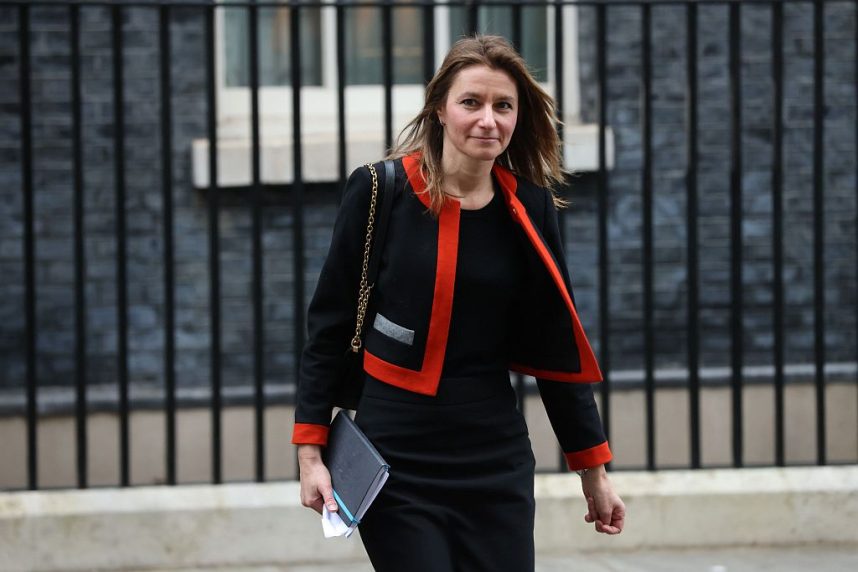UK’s Gambling White Paper Could Lead to More Than $1.3B in Annual Losses
Posted on: April 11, 2023, 03:22h.
Last updated on: April 11, 2023, 02:58h.
The UK missed another deadline last month to present its new gambling white paper. But the government seems to be zeroing in on the final product. While rumors about the white paper’s contents continue to swirl, one knowledgeable source recently asserted that the changes could lead to nine-figure losses for the industry.

Information compiled by The Sun indicates there’s a good chance the white paper will arrive by the end of this month. When it does, it could include modifications to gambling activity that could cause a drop in gross gambling yield (GGY) of up to 8%. That’s according to a letter drafted by Lucy Frazer, the latest Secretary of State for Culture, Media, and Sport, which is the government department leading the gambling reforms.
Frazer’s prediction could equate to GGY losses of as much as £1.1 billion (US$1.35 billion) per year.
A New Questionable Era of British Gambling
The $1.35 billion figure holds up only when factoring in all gambling spending, including lotteries. Data provided by Statista shows that lottery products have the highest GGY among all available gambling options.
Frazer reportedly wrote that the “societal benefits” of the cuts, which target gambling harm, outweigh the loss of revenue. In the history of free enterprise, however, businesses that begin to lose significant amounts of money always look elsewhere to make up the difference.
Frazer added that much of the decline in online gaming revenue will only be the result of people who can’t afford to gamble reducing their activity. Anti-gambling pundits repeatedly argue that the majority of gamblers come from lower-income economic brackets.
A report by Public Health England asserts that “income [and other factors] were shown not to be statistically significantly associated with harmful gambling.” It further states that “demographic factors, particularly sex, appear more significant in predicting at-risk gambling behavior than economic factors, such as income, employment, and relative deprivation.”
These facts won’t stop the changes that are coming. The UK seems determined to reduce the problem gambling rate to zero, even though it has hovered around 0.2% with operator-led efforts for years.
The changes included in the final version of the white paper remain uncertain. But there may be a silver lining for the industry. When Member of Parliament Scott Benton was caught red-handed trading political influence for money, he allegedly spilled a secret.
Benton said that the removal of former Gambling Minister Chris Philp was a good omen for the gaming space, because it created a path that would allow the industry to get “the vast majority of what [it] wanted” with the reforms.
Horse Racing Reform in the Wings?
Another recent rumor is focused on the UK’s horse racing segment, one of the most popular and successful in the world. The Racing Post says new forms might help secure “proper funding” for the sport.
The funding could come by way of a new tax, a proposal horse racing leaders welcome. At the same time, some of the changes coming to the gambling industry, such as affordability checks, could also hit the horse racing segment. This, in turn, could cause its GGY to drop as well.
The bottom line, for now, is that no one knows for sure what the new white paper will bring. Based on the rumors, it appears that the changes may not be as drastic as the anti-gambling lobbyists would like. However, no industry would take lightly an economic loss of more than $1.3 billion a year.
Related News Articles
UK Gambling Reform Bill Reportedly On Its Way to the Trash Can
UK Government Committee to Launch Gambling Study Ahead of New White Paper
The UK’s Overdue Gambling White Paper Rumored to Arrive Next Week
Most Popular
Mirage Las Vegas Demolition to Start Next Week, Atrium a Goner
Where All the Mirage Relics Will Go
Most Commented
-
Bally’s Facing Five Months of Daily Demolition for Chicago Casino
— June 18, 2024 — 12 Comments -
Chicago Pension Mess Highlights Need for Bally’s Casino
— July 2, 2024 — 5 Comments
















No comments yet